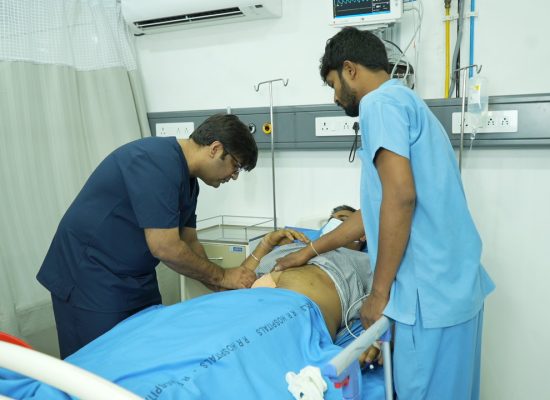
Critical care is a specialized field of medicine that provides care and treatment to patients with life-threatening illnesses or injuries. It is an essential part of modern healthcare systems, as it focuses on providing the necessary support to help patients recover from serious health conditions.
One of the primary goals of critical care is to stabilize a patient’s condition and prevent further deterioration. Critical care teams work closely with other healthcare professionals, such as doctors, nurses, and therapists, to provide comprehensive care to patients in need. This multidisciplinary approach ensures that patients receive the best possible care and treatment.
In critical care, the focus is on providing patients with the right level of care at the right time. This often involves the use of advanced medical technologies and equipment, such as ventilators, monitors, and specialized medication delivery systems.
Critical care teams are trained to use these technologies effectively and efficiently, helping to improve patient outcomes and reduce the risk of complications.
One of the key aspects of critical care is communication. Critical care teams work closely with patients and their families to ensure that they understand the patient’s condition and the treatment plan. They also provide emotional support to patients and their loved ones, helping to reduce anxiety and stress during what can be a challenging time.
At our hospital, we are committed to providing the highest quality critical care to our patients. Our critical care team includes highly skilled and experienced healthcare professionals who are dedicated to providing compassionate, personalized care to each patient. We use the latest medical technologies and equipment to ensure that our patients receive the best possible care and treatment.

Critical care is typically required for patients who are experiencing life-threatening illnesses or injuries. This may include conditions such as severe infections, heart attacks, strokes, traumatic injuries, and respiratory failure.
During your stay in the critical care unit, you can expect to receive round-the-clock monitoring and support from a team of healthcare professionals. You may require mechanical ventilation, intravenous medications, and other specialized treatments depending on your condition. Your healthcare team will also work closely with you and your loved ones to provide emotional support and answer any questions you may have.
While critical care can be lifesaving, there are also potential risks and complications that patients should be aware of. These may include infections, blood clots, organ failure, and delirium. Your healthcare team will closely monitor your condition and take steps to minimize these risks throughout your stay in the critical care unit.

“Experience compassionate care and advanced medical treatments at RR Hospitals – where your health is our priority.”
Stay in touch with our news and promotions